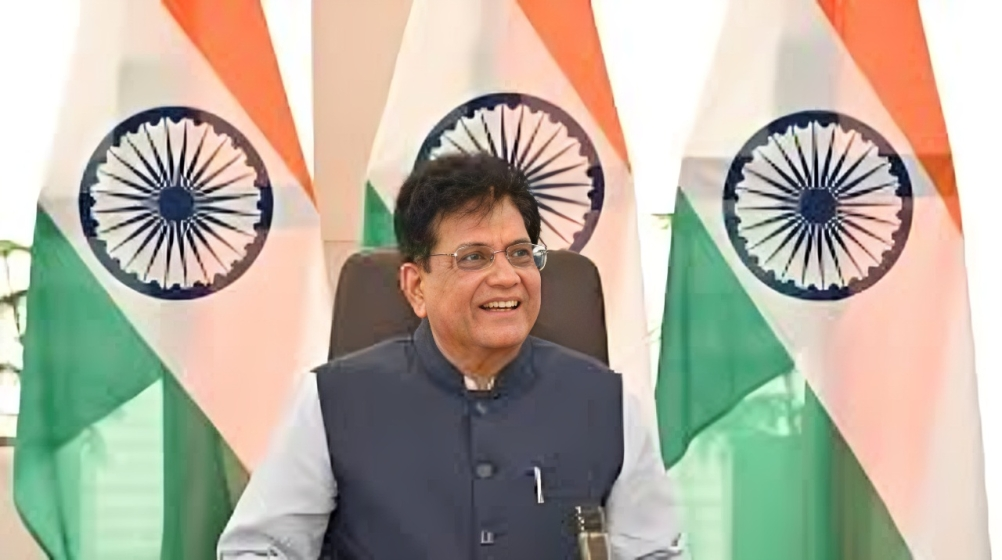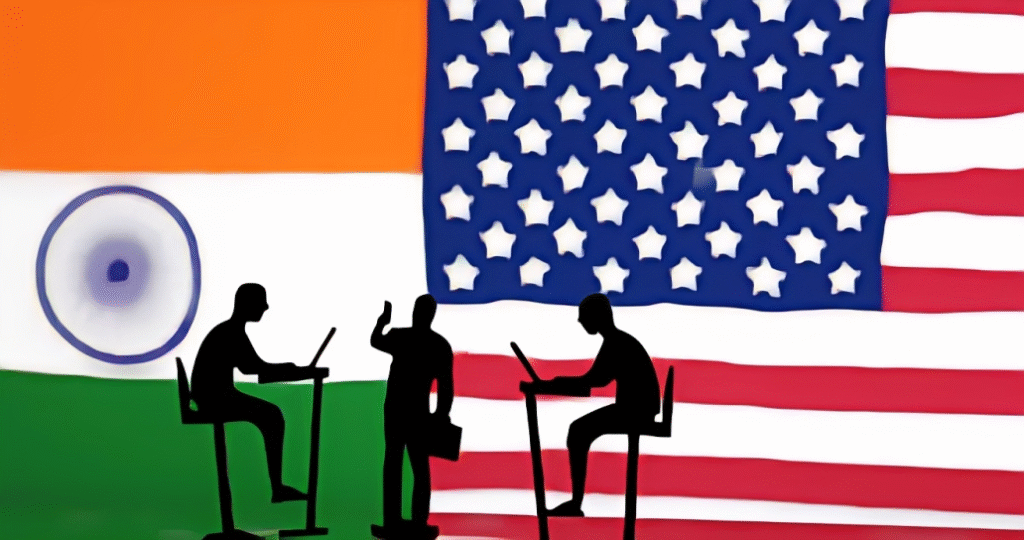India US Trade Agreement negotiations are at a crucial stage, but Union Minister Piyush Goyal has made it clear — India will not rush into any trade deal unless its national interests are fully protected. Addressing the 16th Toy Business Expo in New Delhi, Goyal emphasized that the government will make no compromises under deadline pressure. “We will sign an agreement only when it’s fully mature and beneficial to India,” he affirmed.
India US Trade Agreement: No Compromise on National Interest
The India US Trade Agreement discussions involve key demands from both sides. While the United States wants tariff relaxation on its agricultural products, India seeks greater market access in the U.S. for its labor-intensive products like textiles, footwear, and handicrafts.
Piyush Goyal stated that any agreement with the U.S. will only happen when it’s “good, comprehensive, and strategically sound.” He made it clear that there is no fixed timeline, and India is ready to wait for the right terms.
Deadline Pressure Will Not Decide India US Trade Agreement
July 9 is a significant date in this conversation. The reciprocal tariffs imposed by the U.S. on certain Indian goods are set to expire. Naturally, both countries are trying to resolve issues before this deadline. However, Goyal reiterated that India doesn’t take decisions under pressure. Instead, it will stick to the principle that any trade deal must serve India’s best interests.

Broader Trade Outlook Beyond India US Trade Agreement
While the India US Trade Agreement dominates headlines, Piyush Goyal highlighted that India is actively negotiating Free Trade Agreements (FTAs) with several other nations and blocs. These include:
- European Union
- New Zealand
- Oman
- Chile
- Peru
According to him, each of these agreements is approached with full maturity and mutual benefit in mind. “India’s priority remains national interest, protection of local industries, and welfare of farmers,” he said.
Agricultural Sector: The Sensitive Issue in India US Trade Agreement
Experts agree that agriculture is the most sensitive issue in the India US Trade Agreement talks. The U.S. wants India to reduce tariffs on its agricultural exports. But India is treading cautiously. In a country where agriculture plays a vital role both economically and culturally, any policy affecting farmers becomes highly sensitive.
Atul Keshap, President of the U.S.-India Business Council, noted that agricultural negotiations are always emotionally charged in any country. “This is not just about economics but about emotions and political identity,” he remarked.
India US Trade Agreement Follows the ‘India First’ Policy
India has shown a consistent stance on prioritising its own citizens. Be it trade or energy, India makes choices that benefit the country first. Foreign Minister S. Jaishankar had earlier taken a similar stand during the oil trade with Russia, saying India will buy from wherever it gets the best deal.
This same approach is now guiding the India US Trade Agreement. The government is working to ensure that Indian consumers, industries, and farmers are not negatively affected.
Future of India US Trade Agreement Looks Constructive
Despite complexities, the outlook for the India US Trade Agreement remains constructive. Both nations recognize the value of stronger bilateral trade. Experts believe that with mutual flexibility, a balanced and fair agreement can be reached.

India’s cautious yet open approach is designed to ensure long-term benefits. Goyal has clearly signaled that India is willing to engage, but only when the terms align with the country’s strategic and economic goals.
The India US Trade Agreement is not just a bilateral negotiation—it is a balancing act of economics, politics, and diplomacy. By not setting artificial deadlines and putting India’s interest first, the country is sending a powerful message to the global trade community.
As the July 9 tariff expiry looms, all eyes are on the outcome. But one thing is certain—India will move ahead only when the agreement is truly fair and beneficial.


